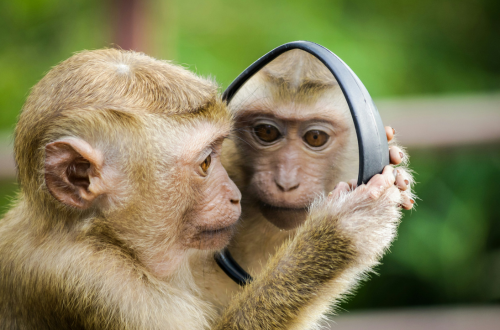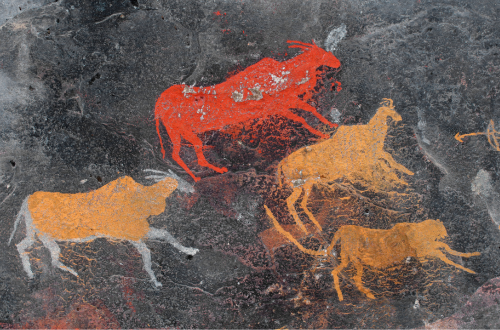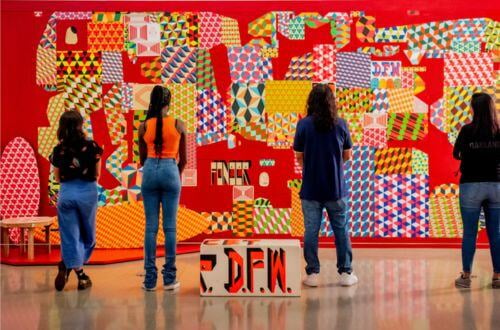
Through anthropology courses, students learn to understand the human experience across cultures and through time, developing a greater appreciation for our biocultural diversity and evolutionary history as well as a better understanding of our own society and culture.
Department Overview
Anthropology is the holistic study of humanity across all time and space, examining humans as both biological and cultural beings. It uses a comparative, historical, and evolutionary perspective to understand the full range of human diversity and to apply this knowledge to contemporary problems.
The academic discipline of anthropology is traditionally divided into four main subfields:
Cultural (or Sociocultural) Anthropology
- Focuses on human societies and cultures in the present and recent past, focusing on patterns of shared human thought, behavior, beliefs, and social organization. Includes the study of social and cultural change, health and healing, ecology and subsistence patterns, political organization, technology and globalization.
- Employs ethnography, a research method where an anthropologist immerses themselves in a specific community for an extended period to gain a firsthand understanding of their way of life.
Biological (or Physical) Anthropology
- Studies humans as biological organisms within an evolutionary framework.
- Explores evolutionary theory, molecular biology and genetic inheritance, primatology, paleoanthropology, and modern human populations
Archaeology
- Studies past human cultures through the recovery and analysis of material remains, such as artifacts, architecture, and other physical evidence. Through the study of material culture, lifeways of people from the distant past through recent times are reconstructed.
- Addresses how societies were organized, daily activities, technology, trade, and subsistence, how they interacted with their environments, provides missing narratives from historical periods.
Linguistic Anthropology
- Studies the role of language in social life, investigating how language reflects and shapes culture, identity, and social groups.
- Addresses the structure and evolution of language, as well as how people use language in different social contexts (sociolinguistics).
Contact Us
Department Chair
Kirsten Olson
kolson@peralta.edu
Dean
Tarek ElJarrari
teljarrari@peralta.edu
Learning & Career Pathways
Science, Engineering & Math
Division
Division of Mathematics, Sciences & Engineering
Career Opportunities
A degree in anthropology prepares graduates for a wide range of careers in diverse sectors by fostering strong research, analytical, and cross-cultural communication skills.
 Career Opportunities
Career Opportunities
Education and museums
· College Professor or Teacher: Teaches in a university, college, or K-12 setting.
· Museum Curator or Collections Manager: Acquires, cares for, and creates exhibits related to artifacts.
Business and technology
· Market Researcher: Uses ethnographic techniques to understand consumer behavior and market trends.
· User Experience (UX) Researcher: Applies knowledge of human behavior to improve the design and usability of products, websites, and services.
· Human Resources Manager: Utilizes cultural awareness and understanding of different perspectives to navigate workplace diversity.
Government and public service
· Foreign Service Officer: Works in diplomacy and international relations, drawing on cross-cultural expertise.
· Cultural Resource Manager: Works for government agencies or private firms to manage and preserve historical and archaeological sites.
· Park Ranger: Helps manage and interpret natural and cultural resources in national parks.
· Urban or City Planner: Develops community plans and programs informed by an understanding of diverse populations and societal needs.
Health and nonprofit
· Public Health Analyst/Educator: Designs and implements health programs for diverse populations.
· International Aid/Development Worker: Helps design and implement programs for non-governmental organizations (NGOs).
· Community Development Worker: Works with communities to address social and economic issues.
· Medical Anthropologist: Researches the relationship between culture, health, and disease to help develop culturally sensitive healthcare practices.
Specialized fields
· Forensic Anthropologist: Assists law enforcement in the identification of human remains.
· Environmental Specialist: Works for environmental agencies or organizations, sometimes focusing on human-environment interactions.
For more information about careers in Anthropology, this video from the American Anthropology Association holds a wealth of information.
Degree

This Degree is designed to prepare students for a seamless transfer with junior status and priority admission to a local CSU campus to a program or major in Anthropology or similar major for completion of a baccalaureate degree.
Oakland Museum of CA
Show your current semester sticker or staff badge, and enjoy complimentary access to the Oakland Museum of CA
Explore fascinating exhibits, discover new perspectives, and make the most of this incredible opportunity. Whether you're an art lover, history buff, or just curious, there's something for everyone at OMCA!

.png?width=500&height=330&name=Laney%20College%20Enrollment%20(3).png)
Unlock Financial Aid for College Expenses
 Transfer To A University
Transfer To A University
Laney College's AA-T and AS-T degrees guarantee junior standing admission to the CSU system, with priority for local CSU campuses in similar programs. Consult a counselor or transfer specialist for details.
.png?width=60&height=60&name=CTE%20(6).png) Meet With A Counselor
Meet With A Counselor
Counselors can help you create a Student Educational Plan (SEP) to outline the courses needed for an Associate’s degree, transfer, or certificate, even if you're unsure of your educational goals.
.png?width=60&height=60&name=CTE%20(10).png) Uncertain About Your Career Path?
Uncertain About Your Career Path?
We provide support with career exploration, self-assessment as well as the major and career decision making process to help all Laney students achieve career satisfaction and success.

